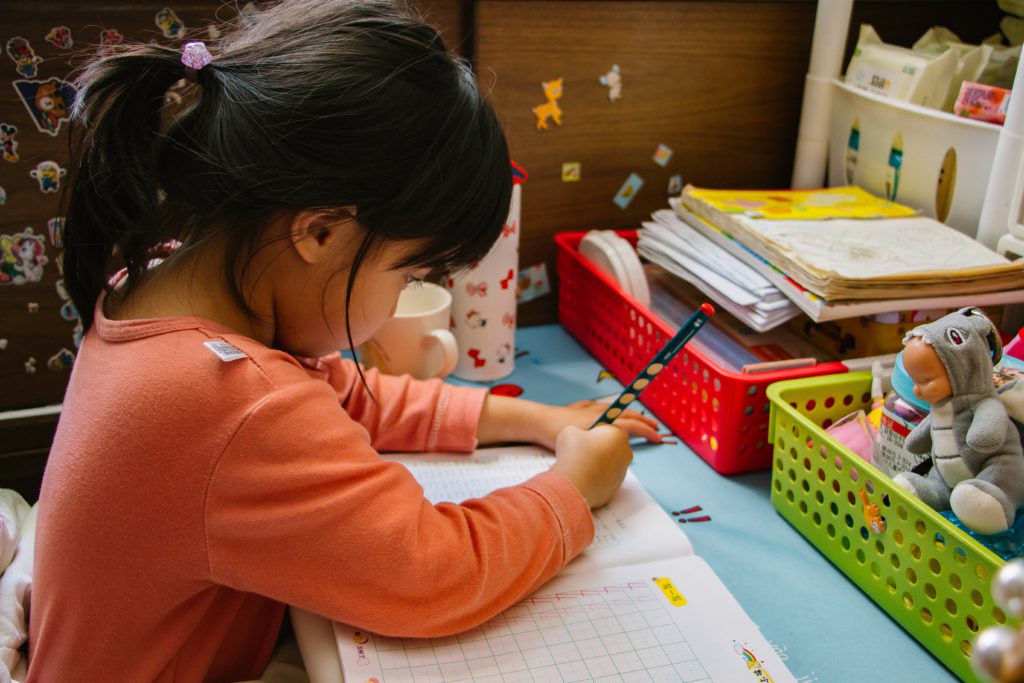As we enter this unprecedented school year, a lot is at stake. Over the last several months, many families and providers have experienced the buildup of toxic stress. As both child care providers and teachers of school-age children are asked to be first responders for their children’s physical safety and their mental health needs, of course, we are called again to question what brought us here. At the same time, we must not lose sight of the future we hope to build.
Clues to that future are hidden in plain sight among the challenges we currently face. Some, more obvious than others. Indeed, concerns about equitable learning outcomes for virtual schooling ask us to consider not just if children have access to time, support and reliable internet, but why they may not. Calls to provide another round of emergency funding to keep child care centers and homes afloat lead us to question why it is normal that our providers live in a constant state of economic precarity. Recommendations to increase the availability of child care health consultant services lead us to question why these services weren’t able to be scaled up quickly during a public health crisis. The establishment of a 24-hour helpline calls us to wonder why such a resource was not already in place for child care providers, and why so many providers are unable to access formal mental health services.
A rubber band under pressure will only snap at the places where the elastic was already disintegrating. Bandage solutions during a crisis can obscure the bigger picture, especially if we promise to focus on bold reform only once the crisis is over. If we build a child care system that serves us well during a global pandemic, then by virtue, it will serve us even better as the crisis fades.
Today we mourn the provider in Washington County who lost their life. Though cases in child care settings have been low, we mourn the disruption and trauma experienced due to the other COVID-19 clusters in early childhood classrooms. We unfortunately must brace ourselves for more loss. At the same time, we celebrate six months of providers and families doing the unimaginable. We celebrate providers who keep our children safe and teach them to find joy among the uncertainty. Most of all, we celebrate the future we will build together.
What is your boldest dream for the future of our early childhood system? Write to us here.
Below you will find some highlights from our COVID-19 timeline of June, July, August and September. Click here to view the full timeline.
| Final Week of June | NC Department of Health and Human Services begins reporting COVID-19 clusters in child care and school settings. The updates are provided every Tuesday and Friday by 4 p.m. |
| July 7 | An article published in Early Learning Nation stresses the necessity of intentional conversations about race for the developmental health of young children. Dr. Jacqueline Dougé urges parents not to avoid discussing differences, to encourage appropriate curiosity and to help children learn to speak up when they see discrimination. This is important work to initiate especially during a time when children are not exposed to other children and families on a regular basis. As a companion, see also this resource about supporting Black children in coping with racial trauma, published by Child Trends. |
| July 14 | Governor Cooper announces North Carolina schools will reopen under “Plan B,” which entails in-person learning with reduced capacity, social distancing and the option of virtual learning for families who prefer it. Different options for executing “Plan B” might include rotating schedules or only teaching younger children in person. Districts may also choose to operate under “Plan C,” in which all students partake in virtual learning. |
| July 16 | NC Department of Health and Human Services releases COVID-19 online resources for Spanish-speakers. Including a symptoms guide (Comprobar Mis Síntomas), testing site locator and contract tracing tool. |
| July 20 | Child Care Services Association opens a second round of funding for its COVID-19 relief fund. |
| July 28 | North Carolina Budget and Tax Center releases a report titled “Equitably Financing Child Care in Every North Carolina County.” The report notes that “the state’s financial commitment to the child care subsidy program has declined by 538 percent since Fiscal Year 2007-2008.” The report advocates for a higher subsidy reimbursement rate that provides consistency across the state. |
| July 24 | As families prepare for a new school year, some children are beginning their kindergarten year virtually. A New America blog post offers suggestions for helping children transition to elementary school in unusual circumstances, including virtual classroom tours, orientation phone or video calls and kindergarten readiness toolkits. |
| August 4 | NC Department of Health and Human Services reports the first death associated with a child care center in the state, a staff member at Grace Filled Beginnings in Washington County. CCSA grieves the loss of this provider. Providers in need of mental health support can call the Hope4Healers helpline 24 hours a day at (919)-226-2002. |
| August 4 | Durham PreK publishes reopening statement with differing guidance for Durham Public Schools, private classrooms and Head Start classrooms. All DPS classrooms will be virtual for the first nine weeks, private programs will be under a hybrid model and Head Start classrooms will attend virtually with the option for in-person instruction beginning in October. |
| August 10-11 | UNC Social Work’s Jordan Institute for Families virtually hosts a two-day conference entitled “Addressing Suspensions and Expulsions in Early Childhood: A Collective Approach Towards Equity and Justice,” in collaboration with the National Black Child Development Institute, Educational Equity Institute and Appalachian Sustainable Agriculture project. Ahead of the 2020-2021 school year, conference attendees confronted the reality that not only are approximately 250 preschoolers estimated to be suspended or expelled (nationally) each day, but Black children are nearly two times more likely to be removed from their programs. Among solutions brought to the table were fair compensation for providers, more robust data collection (private programs are currently not required to provide expulsion data) and improved licensing standards to keep educator to child ratios down. |
| Week of August 17 | North Carolina school year begins, with all school districts operating under either a reduced in-person schedule or entirely virtual learning. |
| August 20 | North Carolina Early Education Coalition publishes policy brief, titled “North Carolina’s Child Care Crisis During COVID-19.” The brief calls on state policymakers to provide funding to a child care system “on the verge of collapse.” The most pressing priorities included continuing bonus/hazard payments for child care teachers and staff (funding ran out in May), expanding child health care consultation and technical assistance, offering emergency subsidy assistance to families on the subsidy waiting list and a second round of operating grants for child care programs. |
| August 31 | Child Care Services Association releases the COVID-19 Relief Fund Phase I Report. In Phase I of the fund, CCSA helped approximately 700 child care providers across North Carolina. This was done in partnership with Smart Start and with the donations of Blue Cross and Blue Shield of North Carolina Foundation, the PNC Foundation, the Truist Charitable Fund, ChildTrust Foundation and other private donors. |
| September 2 | House Bill 1105 passes the North Carolina General Assembly. The bill allocates $35 million in child care assistance and a $335 stimulus to parents of children under 18. However, early childhood advocates have raised concerns about other provisions in the bill that relax regulations and allow community organizations to operate as temporary child care sites, with little oversight. Though temporary child care arrangements can be a godsend for desperate families, licensed child care programs have the track record of safety and quality necessary to support families in the long term, and they may be harmed by this provision. The bill is currently waiting on Governor Cooper’s signature. For more information on HB 1105 and its potential to undermine public health and safety protections, visit our blog post “Back to School: Parents of School-Age Children Scramble to Afford Care.” |
| September 7 | As of September 7, there have been 19 clusters with 279 cases of COVID-19 in child care settings in the state, resulting in two deaths. |



